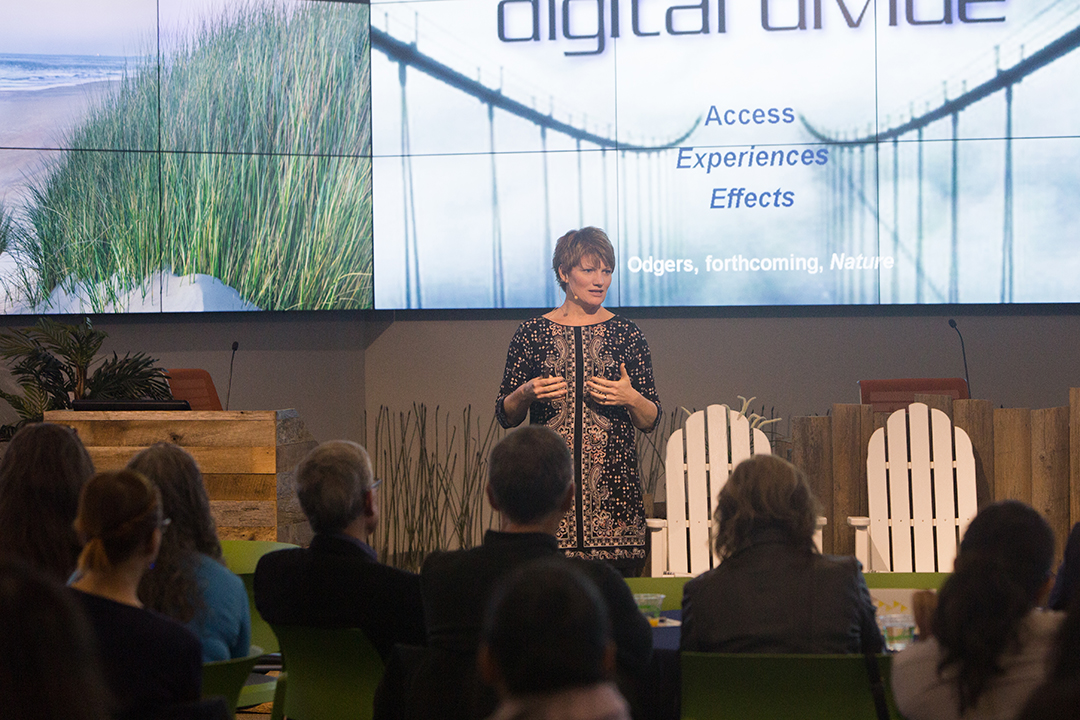
Candice Odgers, professor of psychology and social behavior, explains the science.
The worries are pervasive: kids spend so many hours on their phones, and that must be having an impact on their mental health.
Kids get their first smart phone at 10 years old, and a quarter of teenagers report being online almost constantly. The rest are online several times a day. Adolescents 8 to 12 years old spend, on average, 4.3 hours per day on screens, while teenagers spend 6.6 hours per day on screens, according to Common Sense Media.
So is this constant connection harmful?
Candice Odgers, professor of psychology and social behavior, reviewed the science and answered that question for 80 people at the second Daybreak Dialogues breakfast lecture series in January.
In general, Odgers noted, adolescents are doing well: record numbers of teens are graduating high school and attending college, teen pregnancy rates are hitting new lows and teen alcohol use is declining.
Still, some researchers and media outlets are claiming smartphones are to blame for increases in reported loneliness among teens and a recent uptick in depression among adolescent girls. But in reality, Odgers says, there is no good evidence to support these links.
“Offline risk tends to mirror online risk,” Odgers says. “As adults we often don’t like what kids do. But the question is: is it harmful?”
In reality, kids who spend a couple hours a day – an amount that’s in the middle of the pack – do well in assessments of mental health. Those on the upper end of the spectrum aren’t doing as well, but it’s still unknown whether time online makes kids unhappy or unhappy kids seek refuge online.
Odgers has done some research indicating time online, where adolescents connect with their peers, could actually be a good thing: on days that teens send more text messages, they feel less depressed and, in their experiments, they see that virtual communication can help young people “bounce back” from negative experiences.